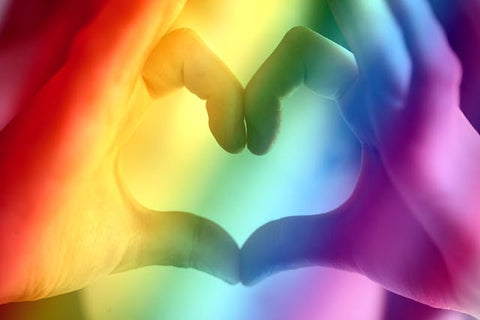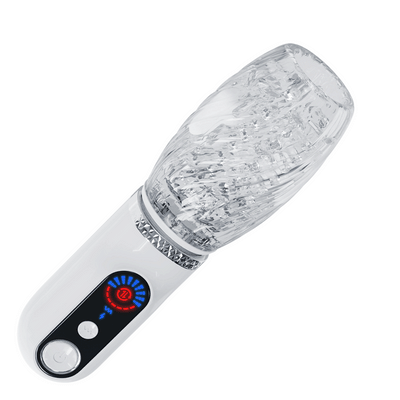What does it mean to be non-binary?
Embracing a non-binary gender identity involves rejecting the conventional categorization of oneself strictly as a man or a woman. Individuals identifying as non-binary don't adhere exclusively to male or female identities; instead, they may see themselves as a blend of both, a unique combination, or something entirely different.
Non-binary meaning
Non-binary individuals embrace a spectrum of identities, including genderqueer, genderfluid, or agender. The concept challenges the notion of a fixed and singular gender, emphasizing its fluid and evolving nature. Some non-binary individuals may identify as transgender, rejecting the sex assigned to them at birth. Definitions within this space are both conventional and subject to change over time.
Key Facts about Nonbinary People
Nonbinary identities have historical roots and are not a recent phenomenon. Cultures worldwide have recognized nonbinary individuals for centuries, dispelling the notion that it's a contemporary trend.
Medical procedures are a personal choice for some nonbinary individuals. While not universally pursued, some undergo medical interventions to align their bodies with their gender identity, a crucial and sometimes life-saving decision.
Nonbinary is distinct from being intersex. Intersex individuals have anatomies or genes that don't conform to typical male or female definitions. Nonbinary people, on the other hand, usually have bodies that align with conventional definitions but identify with a gender outside the binary spectrum.
Not all transgender individuals are nonbinary. While some transgender people identify as nonbinary, the majority have gender identities classified as either male or female. It's essential to recognize and respect the diverse gender experiences within the transgender community.
Types of Nonbinary Gender
- Agender: Absence of a specific gender identity or having a neutral/undefined gender identity. Sometimes synonymous with genderless or neutrois.
- Bigender: Possessing two distinct gender identities, either concurrently or alternately.
- Gender Fluid: Fluctuating between two or more gender identities.
- Genderqueer: A broad term encompassing nonbinary gender identities. Some identify this as their primary identity; however, ensure individuals embrace this term before using it, as it may be construed as offensive.
- Nonbinary (NB or Enby): An inclusive term covering all gender identities outside the binary. Some specifically identify as nonbinary, but the abbreviations (NB or enby) can be contentious. Due to potential confusion with "non-Black," some Black individuals may find NB uncomfortable.
- Two Spirit: A pan-tribal term in indigenous American cultures describing various genders with specific social or ceremonial roles. Some indigenous Americans adopt Two Spirit as a specific identity or use it as an umbrella term for nonbinary identities within their communities.
Non-binary gender testimonials
Martha, 27, shares her unique journey: "I've always felt distinct, without understanding the reasons or origins. The non-binary world was unknown to me, and the most remarkable part of this discovery is understanding diversity through conversation, learning, and shared experiences. It's like assembling a puzzle—diversity is the culmination of the distinct elements that define us."

So, how different are you now?
In many ways, I'm still the same person I've always been. If anything, I've become a more authentic version of myself by embracing openness about my identity with those around me. Like everyone, I'm on a journey of self-discovery, continually figuring out who I am. As I navigate this path, I might ask friends and family to adjust how they interact with me.
Here are some changes I've made. They could be enduring or may evolve. What matters is that this reflects who I am at this moment. While I understand that adjusting language can take time, it means the world to me when people consciously make an effort to respect and accommodate these shifts in my identity."
What about couples of non-binary people?
Couples of non-binary individuals often grapple with questions about their roles and mental patterns, embracing intimacy that celebrates and respects each person's uniqueness. This departure from traditional roles influences sexuality, leading to the discovery of pleasure from diverse perspectives.
One person shared, 'I used to think pleasure was unattainable for me, but now it's a discovery: something achievable, especially with a person I trust and with whom I can embark on this journey together.
Gender and Pronouns
Individuals who identify as nonbinary may opt for gender-neutral pronouns, and among these, the singular 'they' is widely used. For instance, instead of saying, "He/she went to the market to sell his/her wares," you would say, "They went to the market to sell their wares" when referring to a person using they/them/theirs or when their pronouns are unknown.
While it is respectful to use they/them when referring to someone with those pronouns or when uncertain about their pronouns, it's crucial to avoid using they/them for binary trans individuals, particularly trans women who exclusively use she/her pronouns, as it is considered transphobic.
Adjusting to the use of the singular they might pose a challenge initially, but with practice, it becomes more natural. Consider that people often use the singular when referring to an abstract person or someone whose gender is unknown. (The singular they was used twice in the previous sentence, and it might have gone unnoticed.)
Using the correct pronouns is not significantly more challenging, and it holds importance in being truthful and respectful. Misgendering, or referring to a person with incorrect gender or pronouns, can have adverse effects on the mental health of transgender individuals.










Leave a comment